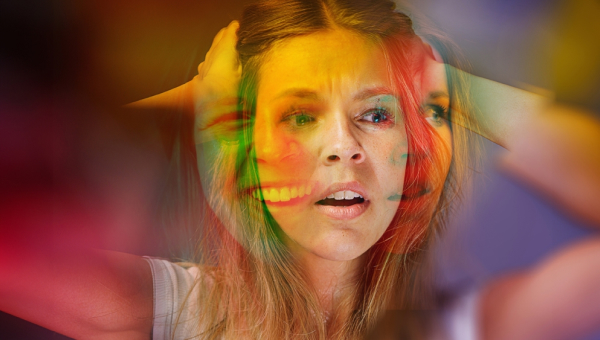Hidden Depression
Aug 20, 2025
How to Recognize Hidden Depression?
Key Traits of Perfectly Hidden Depression:
Perfectionism and Overachievement: A strong need to succeed and a fear of failing can hide deep insecurity and sadness. They might try very hard to reach goals that are impossible, always looking for others to tell them they're good enough.
Extreme or elevated sense of responsibility: You are an expert at figuring out issues and resolving them. You can get hurt because you place too much guilt on yourself, even when it's not your fault.
You have trouble expressing and accepting negative emotions: You have trouble experiencing and displaying unpleasant emotions. Because you believe that anger, grief and disappointment are weak emotions, so you may choose to ignore or avoid them.Hidden depression, sometimes called "smiling depression" or "high-functioning depression," is a form of depression where individuals mask their symptoms from others and sometimes even from themselves. They may appear happy and productive on the outside, but arestruggling with underlying sadness, hopelessness or other symptoms of depression.
How to Recognize Hidden Depression?
Key Traits of Perfectly Hidden Depression:
- Perfectionism and Overachievement: A strong need to succeed and a fear of failing can hide deep insecurity and sadness. They might try very hard to reach goals that are impossible, always looking for others to tell them they're good enough.
- Extreme or elevated sense of responsibility: You are an expert at figuring out issues and resolving them. You can get hurt because you place too much guilt on yourself, even when it's not your fault.
- You have trouble expressing and accepting negative emotions: You have trouble experiencing and displaying unpleasant emotions. Because you believe that anger, grief and disappointment are weak emotions, so you may choose to ignore or avoid them.
- You avoid past or current trauma: It's common for people to put their emotions away until they're ready to face them. However, you do this too much if you have a hidden depression.
- Irritability: While they may appear calm in public, they may become angry or snap at family members in private. This could be a sign of emotional distress.
- Critical Self-Talk: Despite showing confidence outward, they might have self-doubt and see themselves as negative. They draw their attention to failures disregarding achievements.
- Discrepancies in social connections: Sometimes they may exhibit sudden energy and enthusiasm, while at times they may withdraw from them by making excuses.
Managing Hidden Depression
- Embrace Your Emotions: Validate what you feel. Emotions can be brought up to the surface through journaling, talking to someone whom you trust or consulting a therapist.
- Seek expert assistance: Consulting a therapist can help as they may offer a diagnosis and suggest a treatment plan consisting of counselling or medications.
- Self-Care: Maintaining a proper sleep, diet, exercise and indulging in enjoyable activities can be helpful to cope up with depression.
- Avoid unhealthy coping methods: Substance abuse, inappropriate behaviour patterns or avoidance are examples of unhealthy coping mechanisms that people with hidden depression may choose to manage their feelings. It’s important to use constructive coping methods.
- Manage negative thoughts: Individuals having hidden depression may be critical about oneself, other and the world. Using techniques like Cognitive Behavioural Therapy can help in changing negative thinking to more positive ones.
- Make connections: Depression can be managed by engaging in social connections, which may include spending time with loved ones, volunteering in community or joining a support group.
REFERENCES:
- American Psychiatric Association. (2013). Diagnostic and statistical manual of mental disorders (5th ed.). American Psychiatric Publishing.
- Rutherford, M. R. (2019). Perfectly hidden depression: How to break free from the perfectionism that masks your depression. New Harbinger Publications.
- Walker, E. (2024). The 7 signs your loved one is plagued by ‘smiling depression’ – one of the most dangerous mental illnesses. The Sun. https://www.thesun.co.uk/health/32228791/signs-loved-one-smiling- depression/
- World Health Organization. (2021). Depressive Disorder (Depression.) https://www.who.int/news-room/fact-sheets/detail/depression
Recent Post

PMDD – When Hormones Become an Emotional Storm

Feeling Nothing? What to Do if You Feel Emotionally Numb

Depression: Symptoms, Causes, and Treatment

Bipolar Disorder: Navigating the Highs and Lows

Enhancing Psychological Well-Being

The Impact of Stress on Mental Health

The Role of Therapy in Relationship Issues

Understanding and Managing Anxiety Disorders

Workplace Wellness: Promoting Mental Health at Work



